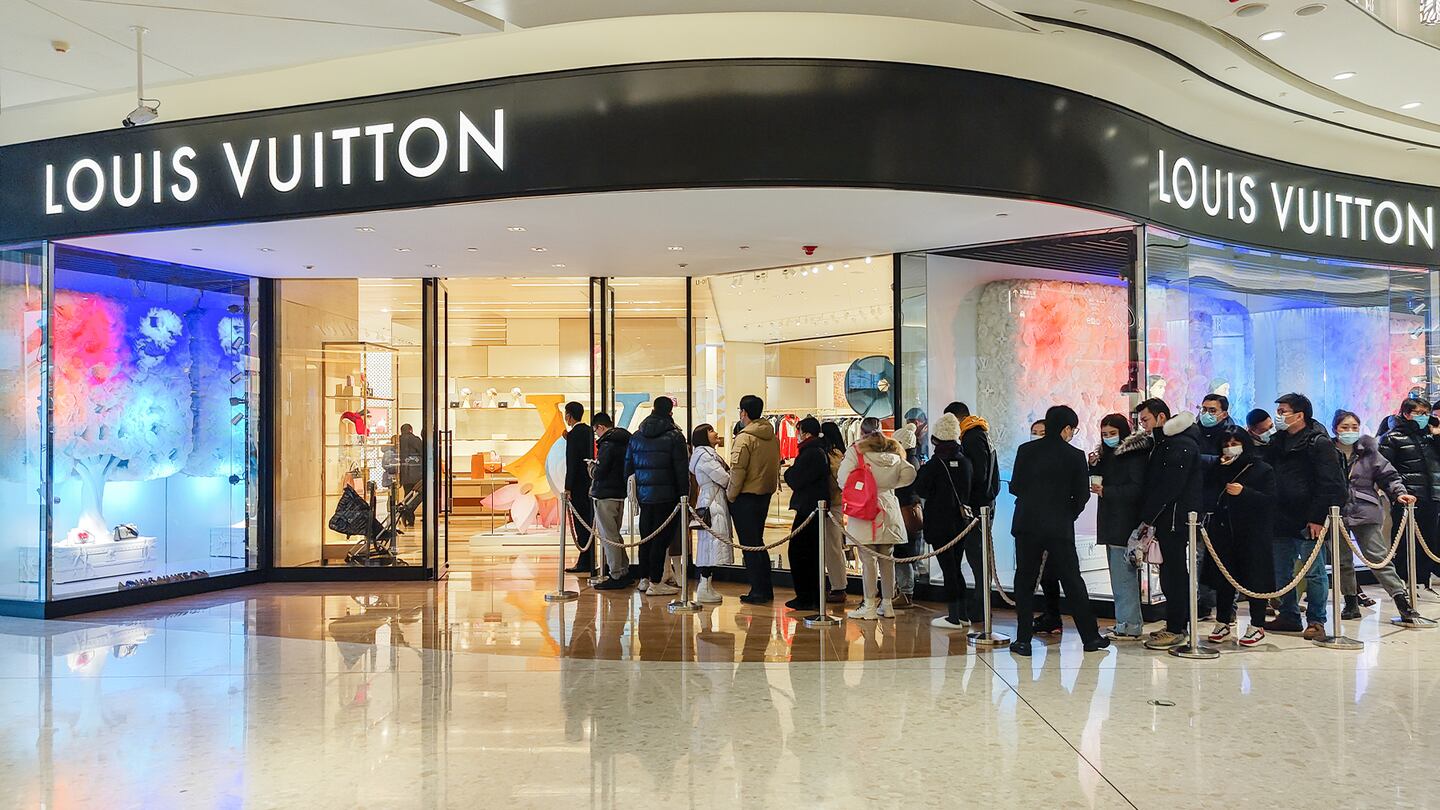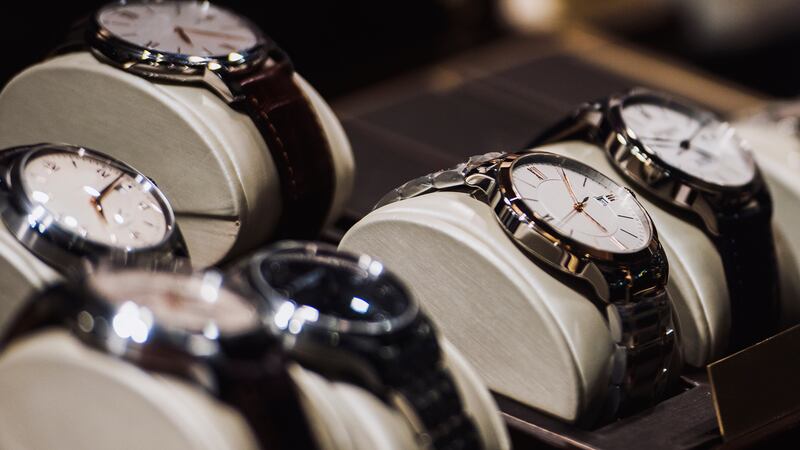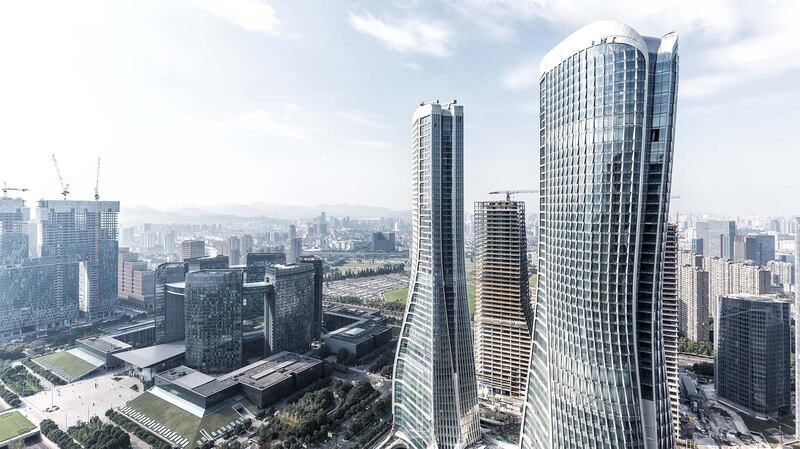
The Business of Fashion
Agenda-setting intelligence, analysis and advice for the global fashion community.

Agenda-setting intelligence, analysis and advice for the global fashion community.

Luxury has been booming in China, where there have been scenes of lines snaking around the block outside Chanel and Hermès stores as consumers — still stuck at home — embrace domestic shopping with gusto.
The repatriation of spending from international shopping destinations to the Chinese mainland has protected the global luxury industry from the worst possible outcomes of the pandemic. It also helped keep luxury firms’ stock prices buoyant, until last week.
On Aug. 17, the market was hit by a sell-off of luxury stocks, following a statement made by Chinese President Xi Jinping: “It is necessary to… rationally regulate excessively high incomes, and encourage high income groups to return more to society,” Xi said at a meeting of the Communist Party’s Central Committee for Financial and Economic Affairs.
Investors seemed to interpret the President’s comments as a significant negative development for the global luxury industry. Prada shares had fallen almost 20 percent by the end of the week, LVMH was down 11 percent, Kering lost 16 percent and Richemont fell 12 percent. In days, $70 billion dollars had been wiped from the value of listed luxury companies.
ADVERTISEMENT
“Reliance on one nationality for an estimated 46 percent [of] sector revenues is never without risk and any threat of intervention is a concern with even limited impact on momentum harming sentiment,” an analyst’s note from Jefferies released late last week read in part.
But investor panic was not just about over-reliance on a single market. It was also because the country in question is China. When the leader of a single-party state based on Marxist-Leninist principles calls for “common prosperity,” it sounds like an attack on capitalism to many in the west. This is particularly relevant because the version of state capitalism that China developed in recent decades is what created the affluent class who are now the luxury industry’s single most important consumer demographic.
Reliance on one nationality for an estimated 46 percent [of] sector revenues is never without risk.
Anything that restrains the wealthy from spending could of course be bad news for the luxury industry, but what did Xi’s comment really mean?
Some observers have jumped to conclusions, suggesting that it could be a precursor to drastic measures, but others say that is unlikely. “The worst-case scenario of direct regulation aimed at curbing luxury spend would be particularly serious, but that is not supported by developments so far,” Jefferies analysts wrote.
It is important to note the context of Xi’s comments, which were about righting the wrongs of economic inequality. Seen through this lens, wealth redistribution could simply mean marginally higher taxes aimed at the country’s highest earners. So far, no legislation has been announced, no policy has been unveiled and no concrete steps have yet been outlined, but the likelihood is that the real-world impact on the luxury industry won’t be as severe as investors’ initially feared.
In fact, other comments attributed to Xi following the conference last week sound more conciliatory to China’s capitalists: “We can support wealthy entrepreneurs who work hard, operate legally, and have taken risks to start businesses… but we must also do our best to establish a… system that allows for fairer income distribution,” he was quoted as saying.
Why Xi Had to Say Something
Inequality in China is growing, and has only picked up pace since the arrival of the pandemic, which hit poor workers and small businesses hardest, while the number of China’s ultra-wealthy rose precipitously.
ADVERTISEMENT
The wealthiest one percent of Chinese people now hold 31 percent of the country’s wealth, up from 21 percent two decades ago, according to Credit Suisse.
China’s income Gini coefficient (a measure of inequality that ranges from 0 to 1) is around 0.47, making it more unequal than the US, where the figure sits around 0.41. Chinese leaders have repeatedly said inequality above 0.40 is potentially destabilising.
Growing inequality undermines the social contract between China’s Communist Party, and the people it rules, whose satisfaction with their government rests largely on the belief that they will continue to grow more prosperous with the party at the helm.
“Inequality has become the Chinese system’s Achilles’ heel,” Branko Milanovic, a senior scholar at the Stone Centre on Socio-Economic Inequality at the CUNY Graduate Centre, wrote in Foreign Policy earlier this year.
In 2021, there is growing evidence that people, particularly young Chinese citizens, have serious doubts about the potential for making upward mobility a reality. Their frustrations have been captured in several new online buzzwords.
One is neijuan (involution) which technically refers to a state in which population growth doesn’t result in greater productivity, but is used more to mean something akin to “burnout” in the Chinese context. Tang ping (lying flat, or essentially, stepping away from the relentless rat race) is another that became popular this year.
“Frankly, when we interview younger consumers now, a lot of them are not that optimistic about the future in terms of their earning power,” said Ben Cavender, director of the China Market Research Group.
Even though China’s political leaders don’t need the support of the public to win general elections, President Xi does need to cement his own legitimacy and that of the party by demonstrating that he is upholding socialist principles and acknowledging people’s concerns because he is seeking a third term in 2022 (having previously pushed to abolish term limits that would have impeded him from doing so).
ADVERTISEMENT
Given this political context, one possible outcome could be new taxes imposed on China’s most wealthy individuals and high-growth sectors.
What Happens Next
“Pushing forward with real estate and inheritance taxes is a key way to stop the wealth gap from expanding,” said Shi Zhengwen, a professor at the China University of Political Science and Law, and an expert on the country’s tax system.
The country’s ultra-wealthy, major beneficiaries of a property boom in recent decades, pay little to no tax on real estate, and China has no inheritance tax. Though neither of these moves would be unexpected, having been long discussed, neither was included in China’s national legislative agenda, unveiled in March by Premier Li Keqiang.
The government is likely going to be very careful about implementing such laws as it runs the risk of dampening confidence amongst the upper middle class in China
“The reform of the property tax is not so much in line with this year’s theme of expanding domestic demand and stimulating consumption,” Li Yujia, chief economist at Guangdong Property Policy Research Institute, told Reuters at the time.
Cavender agrees that, for the Chinese government, the wish to make wealthy citizens pay higher taxes will need to be balanced with incentives for them to help boost consumption in order to continue driving economic growth.
“The government is likely going to be very careful about implementing such laws as it runs the risk of dampening confidence amongst the upper middle class in China,” he said.
Another new tax could more specifically target the country’s tech titans, already subject to an ongoing regulatory crackdown that has seen $1 trillion wiped from the market capitalisation of Chinese tech companies in the first half of this year.
They have long benefitted from a preferential tax rate of 10 percent for companies designated as “key software enterprises,” compared with the country’s general corporate tax rate of 25 percent. An adjustment to that rate is widely expected and was flagged by Alibaba in a post-earnings call with investors in recent weeks.
But some observers, including Naina Batra, chief executive of Asian social investor network AVPN, believe that levers governments in the West use to reduce income inequality, such as taxation, subsidies and welfare benefits are less efficient in China because of the scale and complexity of the country’s economy, making philanthropy a more important factor.
China’s billionaires have already been uncharacteristically generous this year, apparently heeding their President’s call to “return more to society” by donating billions of dollars to support science, medicine, clean energy, education and other causes. It’s likely this type of philanthropy will become more common, but this in itself won’t do much to dent luxury sales.
How Much Will Luxury Be Impacted?
Ultra-wealthy VIP luxury consumers, the likeliest target of any overt moves to curb excess in China, are defined by Jefferies as those who shell out more than €100,000 ($117,000) a year on luxury goods. In total, they number 110,000 and are said to account for a quarter of total Chinese spending on luxury.
Though this is not an insignificant number, according to McKinsey the real driver of luxury sales in the country remains the middle and upper-middle class, a cohort which expanded by 350 percent between 2009 and 2020. A push to lift more of China’s population into this group by promoting an “olive shaped” economy (shrinking economic extremes at each end and growing the centre) could actually be a positive thing for luxury sales in the long-term.
For the next few years, the conditions that have prompted consumers to buy more luxury in China over the last 12 to 18 months are likely to remain in place. China’s economic growth rate is expected to slow, but will continue to increase. In July, even as retail sales figures disappointed analysts, they still grew 8.5 percent year-on-year.
Moreover, those who would ordinarily be investing in overseas travel remain largely trapped within China, probably now at least until 2023, meaning they are likely to continue to redirect higher proportions of disposable income to shopping than they might have otherwise.
Even the much-touted domestic travel boom, in evidence over the past year, is under threat, with continued outbreaks of new Covid-19 variants likely to continue a cycle of restrictions for travel within China. This could mean an even higher proportion of disposable income is set aside for luxury purchases made locally or online, given other methods of self-reward have been taken off the table.
As much as any future government action could impact the behaviour of some of China’s wealthy consumers, a great variety of factors, as well as the strategic approaches taken by the luxury brands themselves, will weigh just as heavily on their relative success or failure in the country.
时尚与美容
FASHION & BEAUTY

Shein to Launch Design Competition TV Series
The show will follow 30 emerging designers as they compete to win $100,000 and will feature a star-studded panel of five judges, including Christian Siriano, Law Roach and Khloé Kardashian. Over the course of the show, the contestants will be whittled down to a final five, with the winner announced in the season finale on Sept. 12. The series is the culmination of a contest the company launched in April as part of its Shein X incubator programme. The contestants’ designs will be made and sold on the company’s website and will feature in its upcoming Autumn/Winter 2021 virtual fashion show. (BoF)
China’s Navy Launches Clothing Line Celebrating Aircraft Carrier
The Chinese People’s Liberation Army’s Navy (PLAN) has collaborated with merchandise manufacturer, Glory Made, to release a line of clothing celebrating the domestically designed and produced Shandong aircraft carrier. Many pieces from the collection wouldn’t look out of place in a streetwear brand campaign, but also consistently reference links to naval life. For instance, T-shirts in various colourways feature images of pandas wearing flight helmets. Board shorts also make an appearance. (BoF)
Chinese Flash Sales Platform Vipshop Sees Q2 Net Profit Up 11.3%
The Chinese fashion flash sales platform said its revenue reached 29.6 billion yuan ($4.59 billion) in its second-quarter report. The platform also reported gross merchandise volume (GMV) exceeded 48.1 billion yuan ($7.41 billion) and net profit reached 1.5 billion yuan ($237 million), up 11.3 percent. This marks 35 consecutive quarters of profitability for the New York-listed firm, the report added. Vipshop’s success is attributed to a strategy focused on leading brands, core products and accessible price points, chairman and chief executive Shen Ya said to analysts in a call following the results’ release. (BoF)
科技与创新
TECH & INNOVATION

Tencent, Weibo Report Q2 Jump in Revenue and Active Users
The technology giant Weibo’s second-quarter net revenue jumped 48 percent year-on-year, helped by a 47 percent rise in advertising and marketing revenue. Tencent’s second-quarter revenue was up 20 percent year-on-year to 138.3 billion yuan ($21.3 billion). Tencent’s social media platform, WeChat, saw monthly active users rise 3.8 percent on the year to 1.25 billion yuan, in spite of a recent temporary suspension in new user registrations due to tightened data collection regulations. (BoF)
JD.com Beats Estimates, Adds Record New Users Amid Regulatory Tightening
The Chinese e-commerce giant beat analysts’ expectations for the quarter and added a record number of new users amid a post-Covid surge in online shopping. Net revenue at JD.com rose about 26 percent to 253.8 billion yuan ($39.14 billion) in the second quarter ended June 30. JD.com’s annual active customer accounts jumped 27.4 percent to 531.9 million. In the quarter, JD.com added 32 million new users, a company record, following a strong showing at its annual shopping festival in June. The results come amid ongoing Chinese regulatory tightening in a range of industries, which has affected both JD.com and other tech industry giants. (BoF)
China’s New Personal Data Privacy Law To Take Effect November 1
The law states that handling of personal information must have clear and reasonable purpose and shall be limited to the “minimum scope necessary to achieve the goals of handling” data. It also highlights the conditions for which companies can collect personal data, including obtaining an individual’s consent. Guidelines for data transferred outside of the country have also been stated. The law’s passage completes another pillar in the country’s efforts to regulate cyberspace and is expected to add more compliance requirements for companies in the country. (BoF)
消费与零售
CONSUMER & RETAIL

Swiss Watch Exports to China Exceed Pre-Pandemic Levels by 75%
Exports to China increased by 75 percent in July, compared with the same month in 2019, according to the Federation of the Swiss Watch Industry. Other Asian markets also declined, with Hong Kong exports falling by a quarter compared with July 2019. European exports overall were close to flat in comparison to exports for the same period two years ago, while the US saw strong growth compared to pre-pandemic levels, the federation said. (BoF)
Stuck at Home, Hong Kong’s Uber Rich Boost Luxury Sales
With residents largely unable to travel abroad without facing lengthy hotel quarantines upon arrival, many are spending big on luxury stays, jewellery and cosmetics. According to a survey by AI marketing firm EternityX, 61 percent of Chinese expats in the city said they were spending more in 2021 than they did last year; around three-quarters of those with an annual income exceeding HK$1.5 million (around $192,616) were spending over HK$20,000 ($2,568) on luxury. (BoF)
政治,经济与社会
POLITICS, ECONOMY, SOCIETY

China Warns Thousands of Officials Over Links with Businesses
The Chinese Communist party has warned thousands of officials in Hangzhou, home to Alibaba, to root out any “conflict of interest” issues they or their family members may have with local businesses. The statement, posted online by the party’s corruption watchdog (the Central Commission for Discipline Inspection), comes two days after the city’s top party official Zhou Jiangyong was detained for “serious violations of discipline” — the term commonly associated with corruption. The detention was not linked to any specific company or entrepreneur. The watchdog said 25,000 local officials and their family members were the focus of “self-examination and self-correction” reviews — focusing on relations with local businesses including “illegal borrowing.” (Financial Times)
Kris Wu Arrested Following Rape Allegations
The Chaoyang District People’s Procuratorate in Beijing approved the arrest of Chinese actor and singer Kris Wu, on suspicion of rape after a legal investigation, it said on its official Weibo account. According to legal sources, under Chinese law the move shows that prosecutors and police have reasonable evidence to believe that Wu committed the crimes he has been accused of. Under China’s criminal law, the standard penalty for rape is three to 10 years imprisonment, though the punishment can be more severe, and include capital punishment in cases considered to be more serious. (BoF)
Compiled by Darcey Sergison.
China Decoded wants to hear from you. Send tips, suggestions, complaints and compliments to our Shanghai-based Asia Correspondent casey.hall@businessoffashion.com.
With consumers tightening their belts in China, the battle between global fast fashion brands and local high street giants has intensified.
Investors are bracing for a steep slowdown in luxury sales when luxury companies report their first quarter results, reflecting lacklustre Chinese demand.
The French beauty giant’s two latest deals are part of a wider M&A push by global players to capture a larger slice of the China market, targeting buzzy high-end brands that offer products with distinctive Chinese elements.
Post-Covid spend by US tourists in Europe has surged past 2019 levels. Chinese travellers, by contrast, have largely favoured domestic and regional destinations like Hong Kong, Singapore and Japan.